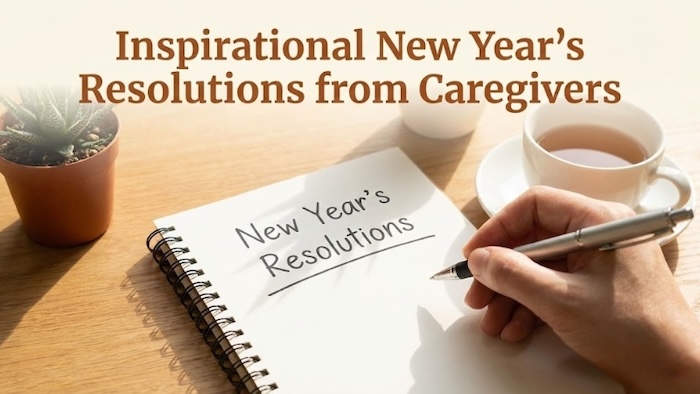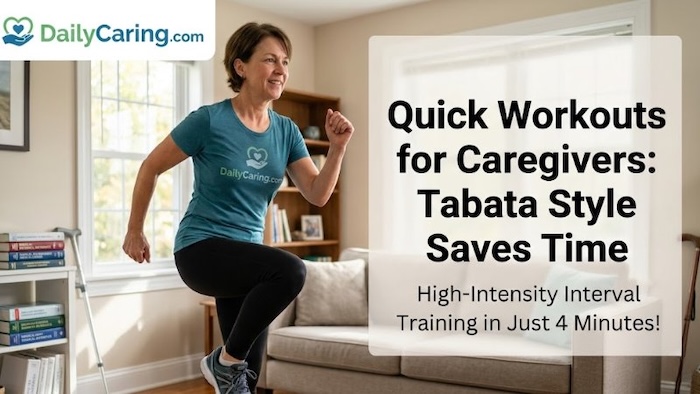Managing multiple medications can be overwhelming for seniors, especially when dealing with different dosages, schedules, and potential side effects. Yet proper medication management for seniors is crucial for maintaining health and preventing dangerous mistakes.
Whether you're a senior managing your medications or a caregiver helping a loved one, these strategies can help reduce stress, improve safety, and ensure that medications work as intended.

Medication Management for Seniors is Essential Today
Most seniors take multiple medications throughout the day, and it can be easy for a mix-up to happen.
Studies show that 87% of seniors take one prescription drug, 36% take five or more, and 38% use over-the-counter medications.
That’s why medication management for seniors is so important.
Putting a simple system in place and taking care of the basics helps seniors avoid common medication mistakes like taking the wrong drug, missing doses, or taking more than prescribed.
We share 10 essential tips to help your older adult safely manage their medications and some helpful tools.
10 Tips for Home Medication Management for Seniors
1. Gather all the medications, vitamins, over-the-counter meds, and supplements into one location
If they’re all stored in different locations, it’s easy to lose track of the prescribed medication, vitamins, over-the-counter medication, or supplements you're taking.
For example, some older adults might keep certain pills in the kitchen, some on their bedside table, and others in the bathroom medicine cabinet.
It’s critical to include over-the-counter medications because they could still cause negative drug interactions when combined with prescription medications.
A good habit is to gather everything into one place.
That way, you can see exactly what is being taken, make sure similar prescriptions aren’t being prescribed for the same health condition, and know when to dispose of expired medications.
To stay organized and increase medication safety, keep all their current pill bottles and packages in a clear plastic storage bin, like this one. That ensures everything stays together.
Use a separate bin for their backup medication supply or for medicines used only occasionally.
2. Make sure medications are properly stored
In general, medication should be kept in a cool and dry place.
That means the bathroom cabinet isn’t a good place to keep meds – moisture and heat can affect drugs.
Medications should also be kept out of the reach of children and pets.
*Important: For medications that require specific storage, such as refrigeration, follow the doctor's or pharmacist’s instructions.
3. Create and maintain an up-to-date medication list
To prevent harmful drug interactions, it’s essential to know exactly what medications your older adult is taking.
That’s why it’s so important always to have an up-to-date list of their medications, vitamins, supplements, and over-the-counter medications.
Be sure to record:
- Names of each prescription medication, over-the-counter medication, vitamins, and supplements
- How often each item is taken
- What dosage of each item is used
- The healthcare provider who prescribed each prescription medication
- The purpose of each item and/or the symptoms it’s supposed to treat
- Whether each item is for short-term or long-term use
4. Pre-sort medications for the week
Staying organized is essential to good medication management for seniors. Using a pill organizer helps your older adult pre-sort their medications for the week.
The best type of pill organizer for your older adult is one with enough compartments for every dose they’ll need throughout the day.
For example, this one has 28 total compartments – 4 doses each day for 7 days.
If any pills need to be split, it may be best to do this ahead of time and include those halves in the pill organizer compartments.
That way, your older adult won’t need to fumble with a pill cutter or remember to split pills before taking them.
5. Double-check for adverse drug interactions
Many older adults are taking multiple medications, vitamins, over-the-counter medications, or supplements.
That’s why it’s important to double-check to make sure none of them will cause adverse drug interactions.
To make sure there aren’t any interactions that the doctor or pharmacist could have missed, use an online drug interaction checker.
If any interactions are found, call the doctor or pharmacist for advice right away (don’t make any changes on your own).
6. Make sure medication instructions are clear
With medications, it’s essential to follow the doctor’s instructions.
That minimizes the risk of adverse drug interactions, side effects, or reducing the drug’s effectiveness.
Make sure you and your loved one understand which medications are safe to take together and which need to be spaced out to prevent adverse side effects.
For example, some medications need to be taken on an empty stomach, while others need to be taken on a full stomach.
If there’s any uncertainty, don’t be afraid to ask the doctor for explanations and detailed instructions.
It’s their job to ensure that medications improve health, and the only way that can happen is if they are taken correctly.
7. Set up a medication reminder and tracking system
With so many medications, it can be tough for seniors and caregivers to remember when to take each dose.
A medication reminder system and tracking log can help your older adult know that they’ve taken the correct meds at the right times.
A simple way to track when medications were taken is to take notes on paper with a pen.
You can create a simple chart with the medication name, dose, day, and time of day. As your older adult takes each dose, record it with a check mark (X).
Filling out this chart helps both them and you know that the doses weren’t missed. Nobody will need to wonder, hmmm, was that morning dose taken already?
To help remember when it’s time to take medicine, there are different ways to set reminders.
Some older adults might like to set a series of alarms on their mobile phone. Tech-savvy seniors might find a medication management helpful app.
If your older adult isn’t tech-savvy and only takes a couple of doses per day, a basic alarm clock could work well.
Some people make it a habit to take certain medications with certain meals. Keeping a routine helps them remember when to take which pills.
8. Understand the likely side effects of medications
It’s essential to understand the potential side effects and drug interactions for each medication.
This helps you watch out for any health changes that may occur after your older adult starts a new medication, increases the dose, or changes how they combine medications.
If you do notice changes or problems, contact their doctor right away.
Common side effects may include an increased risk of falls, upset stomach, pain or weakness, a bad taste in the mouth, and more.
Some side effects could even mimic other health conditions, including dementia.
9. Help seniors with Alzheimer’s or dementia with their medication routine
If your older adult seems confused about their medicine or has been diagnosed with Alzheimer’s disease or dementia, they will likely need help with their medication.
Their cognitive impairment means a reminder system may not be sufficient.
And taking medications incorrectly could cause serious harm to their health.
10. Plan for medication refills
With long-term prescription medications, it’s essential to get refills on time so your older adult won’t run out and miss doses.
The most convenient solution is to ask the doctor to prescribe a 90-day supply through a mail-order pharmacy.
That way, the medication will be mailed, and you’ll only need to remember to re-order every few months.
Many pharmacies also offer automatic refills and will notify you when the prescription is ready for pickup.
Some pharmacies may also have free prescription delivery services, so you won’t have to go pick them up.
Newer online pharmacy services, such as PillPack, Blink Health, or Amazon Pharmacy, offer home delivery, medication coordination services, or discounts.
Note: Online pharmacies may not always be able to dispense or deliver all medications. Check that your older adult’s drugs are included before switching to a new service.
If none of these options work, be sure to mark the refill dates on your calendar so you’ll never forget to order a refill and pick it up before your older adult runs out.
Final Thoughts on Medication Management for Seniors
By implementing these simple yet powerful strategies, you're doing more than organizing pills, you're building a vital safety net that protects your loved one from preventable harm. Each labeled bottle, each updated list, and each scheduled check-in are active steps toward preserving their independence and your own peace of mind.
Medication management isn't just a task to complete; it's an ongoing act of vigilance and love that ensures their treatments are working for them, creating a foundation for healthier, more secure days ahead. Your careful attention here makes all the difference.
Recommended for you:
- 10 Medications That Cause Falls in Seniors: Use with Caution
- The Beers List: Medications Seniors Should Use with Caution
- 5 Tips for Choosing the Safest Over-the-Counter Painkillers for Seniors
This article contains some affiliate links. If you buy through an affiliate link on our site, we may earn a small commission, at no additional cost to you. For more information, see How We Make Money.
About the Author

Connie is the founder of DailyCaring.com and was a hands-on caregiver for her grandmother for 20 years. (Grandma made it to 101 years old!) She knows how challenging, overwhelming, and all-consuming caring for an older adult can be. She also understands the importance of support, especially in the form of practical solutions, valuable resources, and self-care tips.














During the pandemic, many families are taking care of the elderly at home. There may be risks that they may encounter even if they are home and homeowners must take necessary precautions to avoid unnecessary accidents. One main tip that you must follow is to leave all emergency numbers, documents and lists of medications easily accessible to your loved ones.
Great suggestion, thank you!
I’m looking for someone for just 2 weeks to administer intense eye drops to my mother. Is there a service/ company for just coming to a home several times a day to administer medicine? Was hoping to avoid signing up for in-home care….just frequent short visits.
It sounds like you’d need someone with nursing-level knowledge and experience. A reliable way to find someone with those skills is through a home health agency. You’d need to speak with specific agencies to find out about their services. We’ve got an article that explains the difference between home health and in-home care agencies — Home Health Care and In Home Care: What Do They Do? https://dailycaring.com/home-health-care-and-in-home-care-what-do-they-do/
If you want to avoid working with an agency, you’d need to hire someone privately. Since this is such a short term job, it might be challenging to find the right person. We have some tips on how to evaluate candidates to help with caregiving — 7 Steps for Hiring a Caregiver for In-Home Help https://dailycaring.com/7-steps-for-hiring-a-caregiver-for-in-home-help/
I fix medications once a week my client takes meds twice a day so I have ziplock bags marked Monday morning and one for Monday evening etec. Through the week! That way it is easy to tell if they have been taken when I am not there! I found out this works very well for some forgetful seniors!!
That’s a great suggestion! Thanks for sharing 🙂